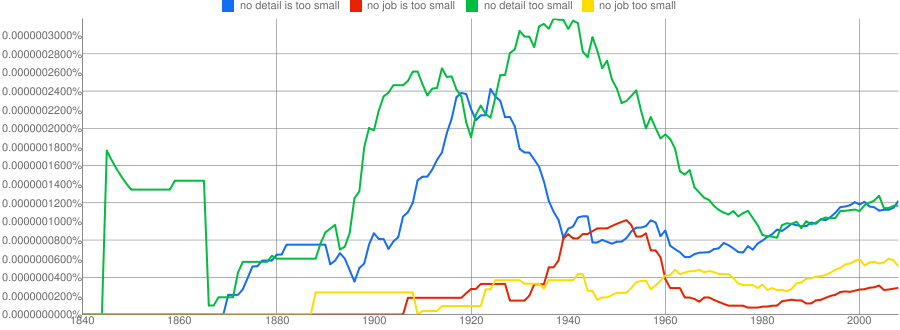I came across a headline of the article of today’s New York Times (Feb.22) giving tips for selling a second-hand apartment, that says
To sell an apartment, no detail is too small
I think ‘‘No detail is too small’ means ‘you cannot be more attentive to the details of things to do it better.’ The phrase reminds me of the old cliché, ‘The God resides in details’ used in secular sense. But ‘No detail is too small’ sounds novel to me. Is ‘No detail is too small’ a common English phrase?
The headline is followed by the following sentence:
Jamella Swift, a Citi Habitats broker, was trying to anticipate every detail that would prevent a potential buyer from purchasing the two-bedroom condo she was selling in Brooklyn. She put a full-size bed in the bedroom so buyers wouldn’t think the room was too small. She dragged in a Lucite coffee table to create the illusion of a larger living space and set up three floor lamps to supplement the recessed lighting. Ms. Swift hoped that the $5,000 she had spent would help her land $395,000 to $425,000 for the apartment.

